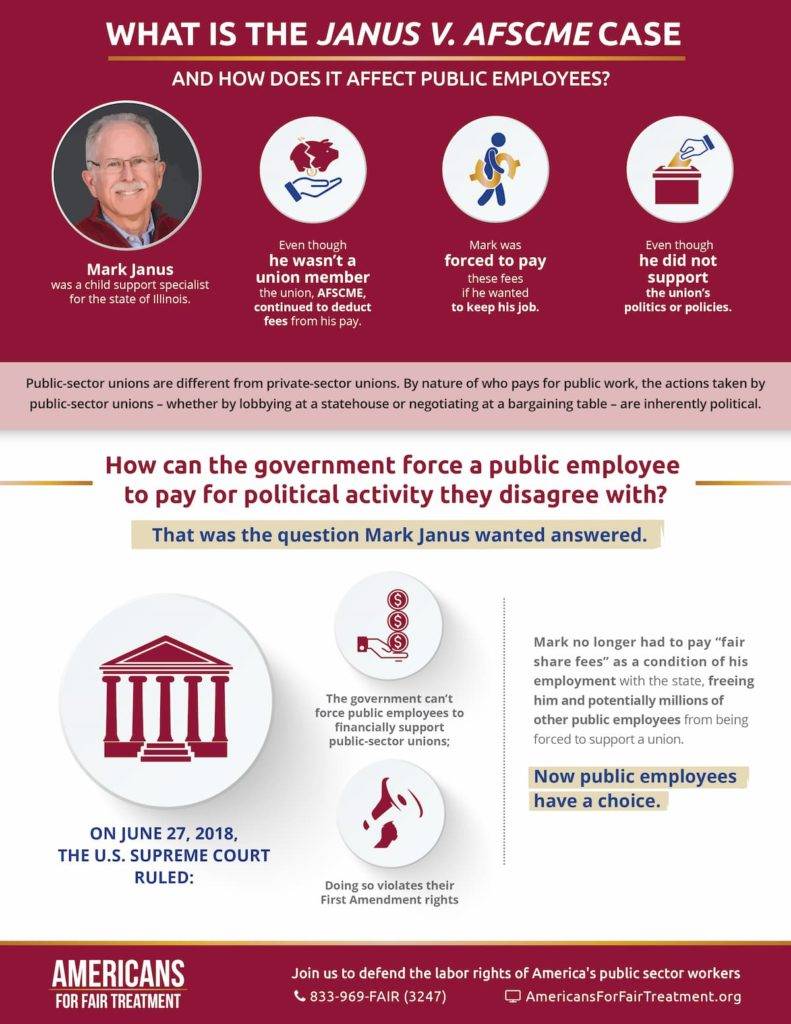What is the Janus v. AFSCME case, and how does it affect public employees?
- Mark Janus was a child support specialist for the state of Illinois.
- Even though he wasn’t a union member the union, AFSCME, continued to deduct fees from his pay.
- Mark was forced to pay these fees if he wanted to keep his job. Even though he did not support the union’s politics or policies.
Public-sector unions are different from private-sector unions. By nature of who pays for public work, the actions taken by public-sector unions – whether by lobbying at a statehouse or negotiating at a bargaining table – are inherently political.
How can the government force a public employee to pay for political activity they disagree with? That was the question Mark Janus wanted answered.
ON JUNE 27, 2018, THE U.S. SUPREME COURT RULED:
1. The government can’t force public employees to financially support public-sector unions;
2. Doing so violates their First Amendment rights
Mark no longer had to pay “fair share fees” as a condition of his employment with the state, freeing him and potentially millions of other public employees from being forced to support a union. Now public employees have a choice. Join us to defend the labor rights of America’s public sector workers.
Public sector employees in a unionized workplace can choose whether or not to join a union. This infographic helps explain your rights as a public sector employee.

If you want to further explore your options, reach out to us at info@americansforfairtreatment.org or 833-969-FAIR (3247).
If you are already a union member and wish to resign, we have information for you here.
Let’s Get Connected
We offer a free membership program, networking opportunities, and professional development scholarships to support qualifying public employees. Sign up today to receive updates from our team.